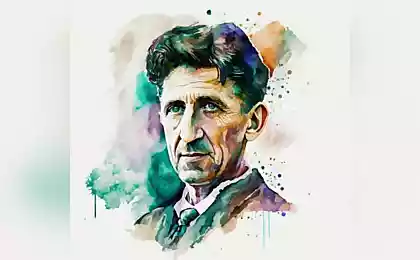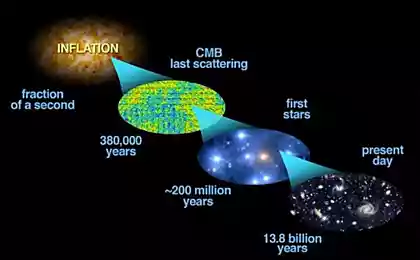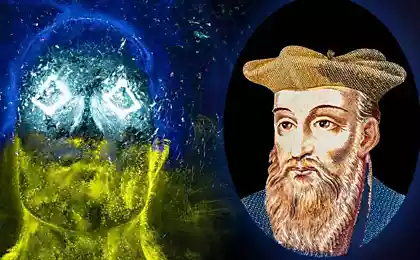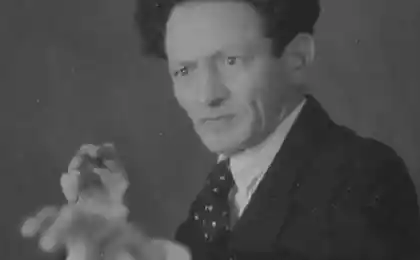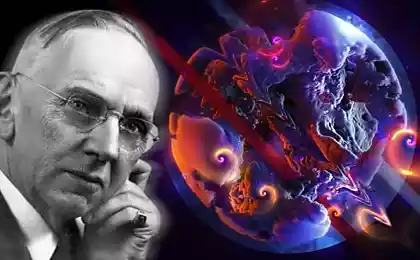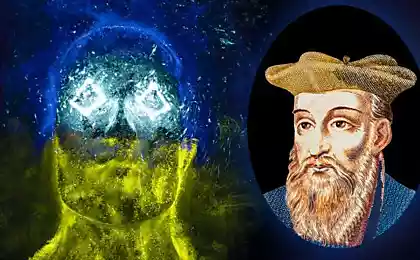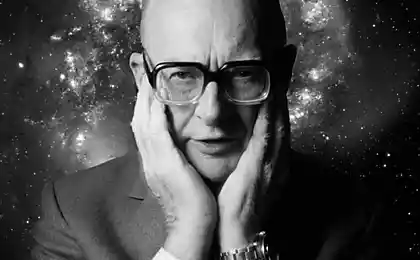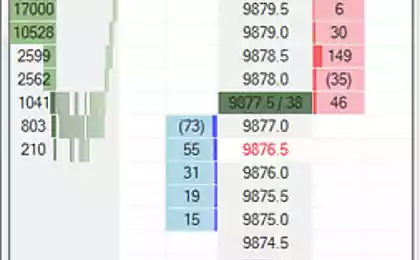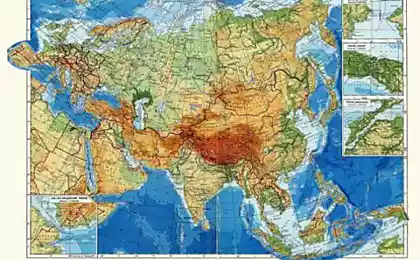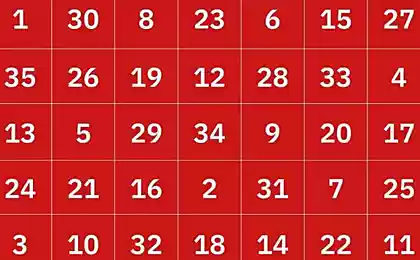828
Ten predictions and prophecies
Science and technology do not stand still, so many incredible things from past predictions have long been commonplace for us are absolutely normal.
From the 1660s: "The time will come when people will transplant organs from one body to another"
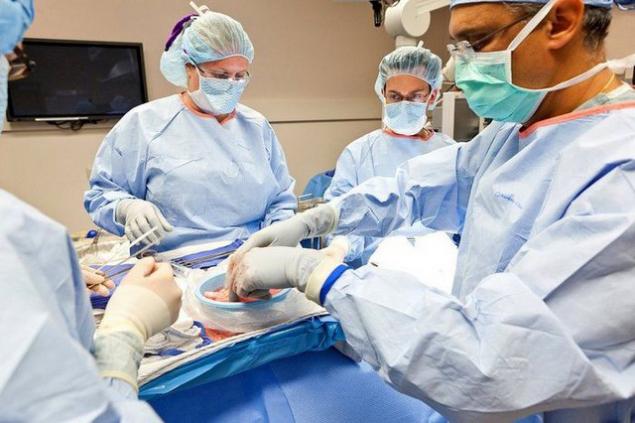
In the manuscript of the famous physicist, chemist and theologian Robert Boyle, which refers to the 1660 th year, talked about the future, when "it will be possible to cure the disease at a distance, or, at least, with the help of organ transplants".
Considering that Boyle lived up to the Age of Enlightenment, the era heyday of magic and superstition, the idea of organ transplantation was a manifestation of an incredibly progressive thinking.
Boyle still belongs to a number of amazing predictions - including, he talked about the device, reminiscent of a modern system of GPS - "a way to find the desired longitude".
From 1840: Alexis de Tocqueville predicted a cold war

"On Earth, today there are two great nations, which began with the opposite position and seems to be moving towards a single goal: Russian and Anglo-Americans ... The points of departure they are different and they go they separate ways; Nevertheless, each of them secretly cherishes the dream to take over the fate of half the world, "- wrote French politician Alexis de Tocqueville in 1840 in his" Democracy in America ".
In a nutshell, Tocqueville believed that the two largest states crave power and, eventually, joined the struggle for it. And this rivalry anyway affect the fate of the world.
From 1863: At a time when there were only 60 known elements, the Russian chemist created the periodic table, which accurately predicted the existence of yet unknown elements 40+ with their weight and properties
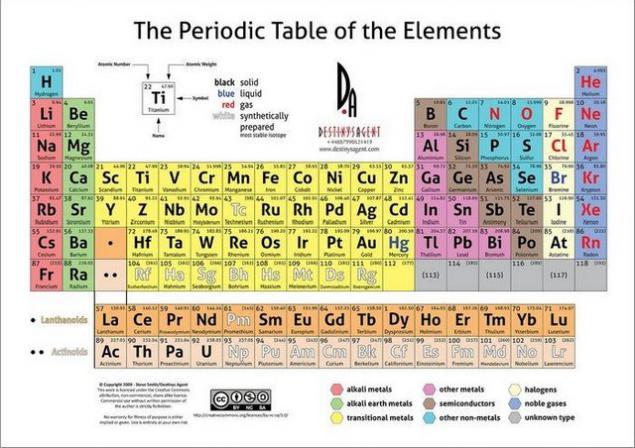
Dmitri Mendeleev predicted the discovery of the unknown in his time of chemical elements with remarkable accuracy. He began his studies in 1863, when scientists were aware of the existence of about 60 elements. Ever since it was discovered more than 40 a minute.
By placing the chemical elements in the table according to their weight and properties, Mendeleev found it empty cells, which, in his opinion, had to be filled.
For example, Mendeleev predicted the discovery of germanium, and even came up with his name "ekosilikon." This element was discovered in 1886.
From 1865 Jules Verne predicted the landing of man on the moon
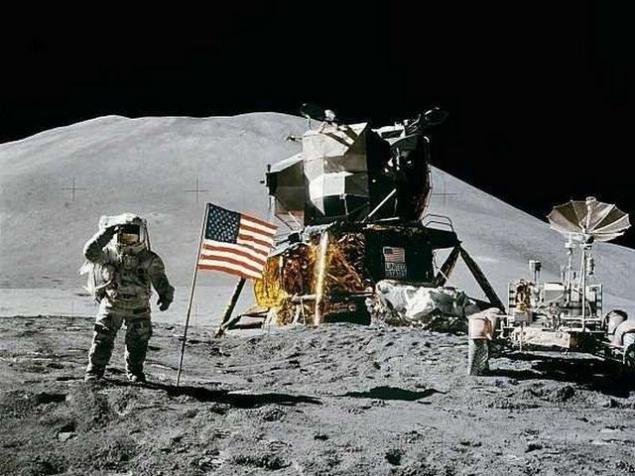
In 1865, 100 years before the flight of "Apollo 11," the French writer Jules Verne wrote a science fiction novel titled "From the Earth to the moon right way for 97 hours and 20 minutes".
In this book, been described in detail with remarkable accuracy predicted the real details of the flight: launch a space ship from Florida, his name, the number of astronauts on board and feeling of weightlessness, which they have experienced. In 1865, Verne could not know how the force of gravity is felt in outer space.
From 1898 Novella, predicted the death of the Titanic
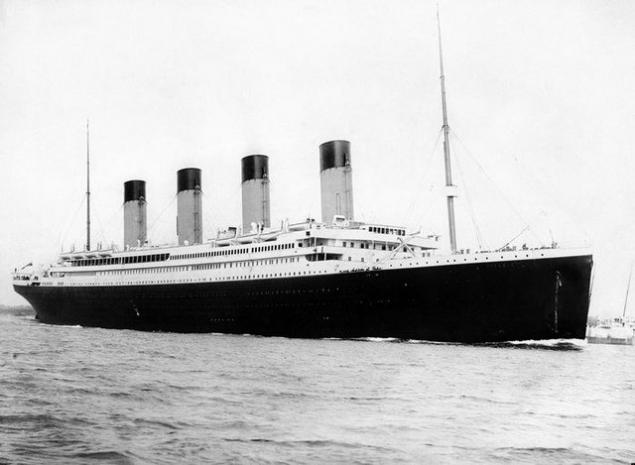
In 1898, a prolific writer and novelist Morgan Robertson wrote a short story called "Futility, or the collapse of Titan." The book accurately predicted and the size of the ship and its destruction from the collision with the iceberg, and the name is very similar.
Titanic went to the bottom in 14 years after the publication of this book Robertson.
From 1909: Nikola Tesla predicted the invention of wireless personal devices
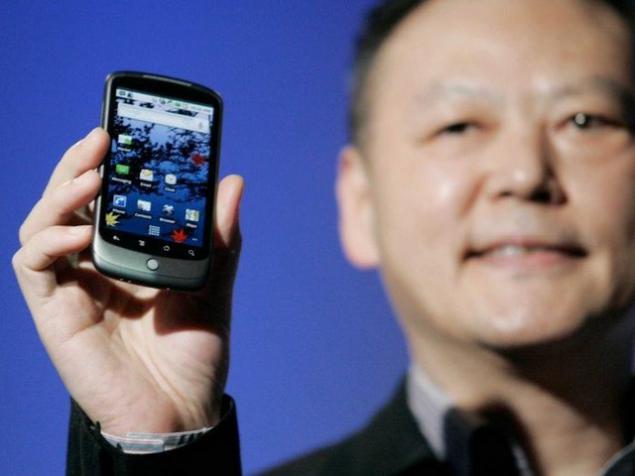
"Soon it will be possible to send messages around the world without wires. It is so simple that the average person will be able to own and operate their own unit, "- said Nikola Tesla in an interview with New York Times in 1909.
From 1914: HG Wells predicted the invention of the atomic bomb
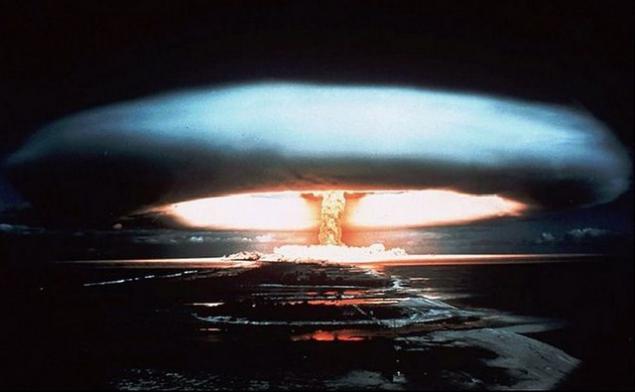
In 1914, HG Wells wrote the novel "World liberated", which described the destruction of the city, "the atomic bomb." While Wells could not know how to actually be a real explosion of an atomic bomb, although he had some idea of the radioactive elements.
From 1988 Isaac Asimov predicted that we will learn through the Internet
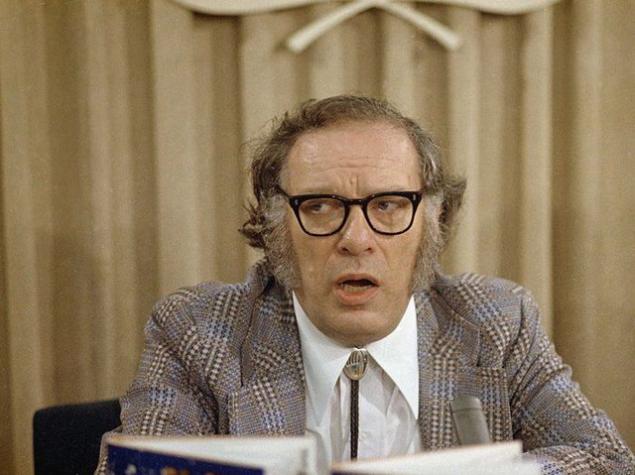
In an interview science fiction writer Isaac Asimov gave in 1988, he almost predicted the emergence of the Internet. More specifically, he described a system in which students will have access to a universal source of information.
Azimov suggested that people through computers will be able to get to any library in the world, and that he (the computer) will be "a teacher in the form of access to all human knowledge".
Asimov was very concerned about the improvement of the education system and saw the perfect solution to this problem in online teaching.
"What people call training today - just coaching. Children have to learn is the same, in the same scenario, the same tempo and at the same time. But they are all different. One perceives the information very quickly, other - slow, the third may require additional explanations ... "
From 1993: The broadcast television AT & T was predicted emergence of tablets as we know them today
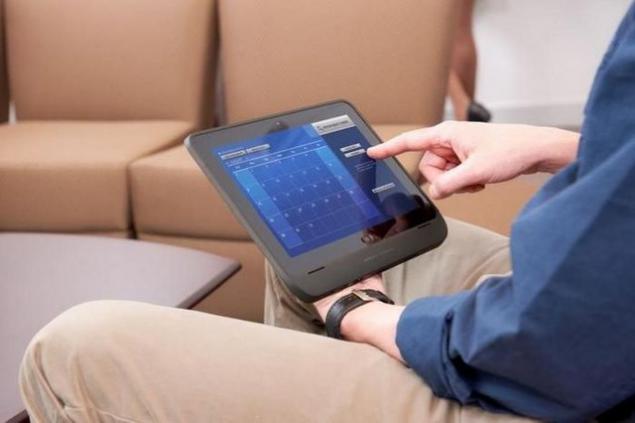
In 1993, the American television network AT & T has launched a series of commercials with imaginary technological devices under the title "You Will", which seemed quite incredible. Among them was a device that allows you to send a fax from the beach.
This device, as you can see in the picture, looks exactly like a tablet today. 20 years later.
From 2006: The Director General of Euro Pacific Capital predicted crisis of 2008

During the debate on Fox News May 16, 2006 CEO and strategist Euro Pacific Capital Peter Schiff gave an accurate prediction as to what the real estate market in the US is a bubble that will soon burst.
While most analysts believe that the US economy is in excellent shape, and it is not in danger.
From
From the 1660s: "The time will come when people will transplant organs from one body to another"

In the manuscript of the famous physicist, chemist and theologian Robert Boyle, which refers to the 1660 th year, talked about the future, when "it will be possible to cure the disease at a distance, or, at least, with the help of organ transplants".
Considering that Boyle lived up to the Age of Enlightenment, the era heyday of magic and superstition, the idea of organ transplantation was a manifestation of an incredibly progressive thinking.
Boyle still belongs to a number of amazing predictions - including, he talked about the device, reminiscent of a modern system of GPS - "a way to find the desired longitude".
From 1840: Alexis de Tocqueville predicted a cold war

"On Earth, today there are two great nations, which began with the opposite position and seems to be moving towards a single goal: Russian and Anglo-Americans ... The points of departure they are different and they go they separate ways; Nevertheless, each of them secretly cherishes the dream to take over the fate of half the world, "- wrote French politician Alexis de Tocqueville in 1840 in his" Democracy in America ".
In a nutshell, Tocqueville believed that the two largest states crave power and, eventually, joined the struggle for it. And this rivalry anyway affect the fate of the world.
From 1863: At a time when there were only 60 known elements, the Russian chemist created the periodic table, which accurately predicted the existence of yet unknown elements 40+ with their weight and properties

Dmitri Mendeleev predicted the discovery of the unknown in his time of chemical elements with remarkable accuracy. He began his studies in 1863, when scientists were aware of the existence of about 60 elements. Ever since it was discovered more than 40 a minute.
By placing the chemical elements in the table according to their weight and properties, Mendeleev found it empty cells, which, in his opinion, had to be filled.
For example, Mendeleev predicted the discovery of germanium, and even came up with his name "ekosilikon." This element was discovered in 1886.
From 1865 Jules Verne predicted the landing of man on the moon

In 1865, 100 years before the flight of "Apollo 11," the French writer Jules Verne wrote a science fiction novel titled "From the Earth to the moon right way for 97 hours and 20 minutes".
In this book, been described in detail with remarkable accuracy predicted the real details of the flight: launch a space ship from Florida, his name, the number of astronauts on board and feeling of weightlessness, which they have experienced. In 1865, Verne could not know how the force of gravity is felt in outer space.
From 1898 Novella, predicted the death of the Titanic

In 1898, a prolific writer and novelist Morgan Robertson wrote a short story called "Futility, or the collapse of Titan." The book accurately predicted and the size of the ship and its destruction from the collision with the iceberg, and the name is very similar.
Titanic went to the bottom in 14 years after the publication of this book Robertson.
From 1909: Nikola Tesla predicted the invention of wireless personal devices

"Soon it will be possible to send messages around the world without wires. It is so simple that the average person will be able to own and operate their own unit, "- said Nikola Tesla in an interview with New York Times in 1909.
From 1914: HG Wells predicted the invention of the atomic bomb

In 1914, HG Wells wrote the novel "World liberated", which described the destruction of the city, "the atomic bomb." While Wells could not know how to actually be a real explosion of an atomic bomb, although he had some idea of the radioactive elements.
From 1988 Isaac Asimov predicted that we will learn through the Internet

In an interview science fiction writer Isaac Asimov gave in 1988, he almost predicted the emergence of the Internet. More specifically, he described a system in which students will have access to a universal source of information.
Azimov suggested that people through computers will be able to get to any library in the world, and that he (the computer) will be "a teacher in the form of access to all human knowledge".
Asimov was very concerned about the improvement of the education system and saw the perfect solution to this problem in online teaching.
"What people call training today - just coaching. Children have to learn is the same, in the same scenario, the same tempo and at the same time. But they are all different. One perceives the information very quickly, other - slow, the third may require additional explanations ... "
From 1993: The broadcast television AT & T was predicted emergence of tablets as we know them today

In 1993, the American television network AT & T has launched a series of commercials with imaginary technological devices under the title "You Will", which seemed quite incredible. Among them was a device that allows you to send a fax from the beach.
This device, as you can see in the picture, looks exactly like a tablet today. 20 years later.
From 2006: The Director General of Euro Pacific Capital predicted crisis of 2008

During the debate on Fox News May 16, 2006 CEO and strategist Euro Pacific Capital Peter Schiff gave an accurate prediction as to what the real estate market in the US is a bubble that will soon burst.
While most analysts believe that the US economy is in excellent shape, and it is not in danger.
From

